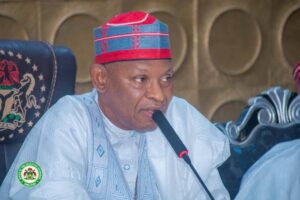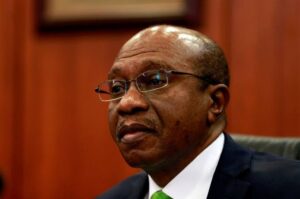

2023 General Elections: SERAP sues INEC for contempt over unaddressed electoral offences
…Says INEC disregard for court, a threat to Nigeria’s democracy
By Sodiq Adelakun
The Socio-Economic Rights and Accountability Project (SERAP) has filed a contempt lawsuit against the Chairman of the Independent National Electoral Commission (INEC), Prof. Mahmood Yakubu, for failing to investigate alleged electoral offences from the 2023 general elections.
This legal action comes in response to a July 2024 court order mandating INEC to pursue investigations into bribery and other misconduct by state governors and their deputies, highlighting growing frustrations over the commission’s inaction and the pressing need for electoral accountability in Nigeria.
This was disclosed in a statement issued by SERAP’s Deputy Director, Kolawole Oluwadare on Sunday, 27 October 2024. However, no date has been set for the hearing of the contempt suit.
According to SERAP, the judge directed the nation’s electoral commission “to pursue cases of bribery against state governors and their deputies, as well as other electoral offences committed during the 2023 general elections,” and “to seek the appointment of independent counsel to investigate allegations of electoral offences, including bribery, vote-buying, conspiracy, and undue influence against state governors and their deputies during the 2023 general elections,” among others.
SERAP stated that, regarding the notice of consequences of disobedience to the court order, the INEC chairman was informed: “Take notice that unless you obey the orders contained in the judgement of 18 July 2024, made by Justice Egwuatu of the Federal High Court, Abuja, in suit number FHC/ABJ/CS/583/2023, a copy of which is hereto attached, you will be guilty of contempt of court and liable to be committed to prison.”
SERAP warned that it was “unacceptable” for INEC to ignore or fail to abide by court orders, adding that Nigeria was being mocked for its “recurring cases of electoral bribery and violence.”
The organisation said, “It’s unacceptable to treat the court, which is the guardian of justice in this country, with disdain. A democratic state based on the rule of law cannot exist or function if INEC and its chairman routinely ignore and/or fail to abide by court orders. Despite the service of the certified true copy of the judgement on INEC and Professor Yakubu, they have failed and/or refused to obey it.
“The recurring cases of electoral bribery and violence mock Nigeria’s electoral process and participatory democracy. The latest allegations of electoral offences in Edo State show that INEC has learnt little or nothing from the well-documented problems of the 2023 general elections.”
Recall that in July 2024, the Abuja Federal High Court ordered INEC to hold state governors, their deputies, and others accountable for cases of electoral violence, bribery, vote-buying, and conspiracy during the 2023 general elections.
Ahead of the forthcoming governorship election in Ondo, SERAP urged INEC to address persistent electoral offences, end the impunity of perpetrators, and ensure citizens’ right to vote and political participation.
Quoting Justice Egwuatu’s judgement, the organisation stated, “The substance of SERAP’s grievance is the violence associated with elections in Nigeria, which tends to prevent citizens from exercising their franchise, thereby obstructing credible elections and, in the long run, credible leadership.
“There is no gainsaying that electoral violence and related crimes during elections in Nigeria are a major impediment to the country’s democratic and economic development. As citizens of this country, SERAP and its members have a legal interest whose enjoyment or enforcement depends on the performance of public duty by INEC.”
SERAP added, “In requesting the performance of the public duty imposed on the electoral body, SERAP has shown a strong sense of patriotism. The Electoral Act 2022 created several electoral offences. Sections 123, 124, 125, 126, 127, 128, and 129 are some of the provisions of the Electoral Act that specify specific electoral offences.
“The trial of offences under the Electoral Act is conducted in a Magistrate Court or a High Court of the state where the offence is committed, or in the Federal Capital Territory, Abuja. See Section 145(1) of the Electoral Act. By Section 145(2) of the same Act, prosecution for the offences shall be undertaken by INEC legal officers or any legal practitioner appointed by INEC. The law, therefore, mandates INEC to perform a public duty.”




